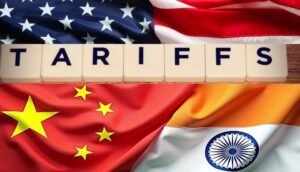Theresa May resigns as UK prime minister amid Brexit crisis

Britain’s Theresa May announced her resignation as prime minister on Friday morning, drawing her turbulent three-year premiership to an abrupt end.
She will leave office June 7.
In an emotional speech outside 10 Downing Street, May said she had “done everything” she could to convince members of Parliament to back the Brexit withdrawal agreement she had negotiated with the European Union. But, she said it was with “deep regret” that she had ultimately failed to reach a consensus among lawmakers.
“I believe it was right to persevere even when the odds against success seemed high, but it is now clear to me that it is in the best interests of the country for a new prime minister to lead that effort,” May said at a hastily arranged press conference.
“I will shortly leave the job that it has been the honor of my life to hold. The second female prime minister but certainly not the last.”
“I do so with no ill will but with enormous and enduring gratitude to have had the opportunity to serve the country I love,” May said, her voice shaking.
Sterling briefly rose 0.5% to climb above $1.27 shortly after May’s statement, before paring gains as investors digested the news.
What happens next?
May will step down as Conservative Party leader on June 7, with a leadership contest set to take place the following week. She will continue as an acting prime minister until a new leader is in place.
It means May will still be in Downing Street for the state visit of President Donald Trump from June 3.
On three occasions, U.K. lawmakers have refused to vote in favor of May’s much-maligned deal to leave the European Union, leading to open challenges to her premiership from within her own party.
The U.K. leader had already promised to set a timetable for a new prime minister to take the reins, once lawmakers had voted on her new Brexit “Withdrawal Agreement Bill.”
But her proposals, including a customs union arrangement and the chance for lawmakers to vote on holding another Brexit referendum, prompted anger from many Conservative MPs.
The opposition Labour Party called May’s latest Withdrawal Agreement Bill a “rehash” and said it would not support the plans.
“Theresa May is right to resign. She’s now accepted what the country’s known for months: she can’t govern, and nor can her divided and disintegrating party,” Labour leader Jeremy Corbyn said via Twitter on Friday.
“Whoever becomes the new Tory leader must let the people decide our country’s future, through an immediate General Election,” Corbyn said.
With no Brexit withdrawal agreement, the prospect of the U.K. suffering a disorderly exit from the European Union now appears to be more likely. Britain and Northern Ireland’s official departure date from the European Union is Oct. 31.
The process of selecting May’s replacement will now begin with Conservative lawmaker and former Foreign Secretary Boris Johnson heavily tipped as her probable successor.
How did we get here?
May’s premiership has lasted around three years after she won the race to succeed David Cameron, becoming the U.K.’s second female leader after Margaret Thatcher.
She began the official process of withdrawing the U.K. from the European Union by triggering Article 50 in March 2017.
The following month, May announced a snap general election with the aim of strengthening her hand in Brexit negotiations. That move backfired as the number of Conservative Party MPs actually fell, forcing her government to operate on a confidence and supply deal, securing votes from the Democratic Unionist Party (DUP) of Northern Ireland.
Her template to exit the European Union ultimately failed to satisfy lawmakers from across the political spectrum and put in place a sequence of events that has seen her step down.
The daughter of a vicar, May attended Oxford University where she read Geography.
The 62-year-old was first elected as an MP in the 1997 General Election and rose to become home secretary before taking the top job of prime minister. Previously, May had worked at the Bank of England.





